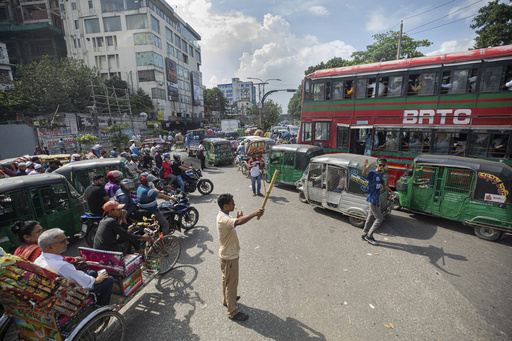The main opposition party in Bangladesh held a public rally in the capital city of Dhaka as the nation prepared for the formation of an interim government led by Nobel laureate Muhammad Yunus. The interim government is a result of the mass protests that led to former Prime Minister Sheikh Hasina stepping down and fleeing the country.
Student leaders who organized the mass protests announced plans to unveil the new Cabinet on Wednesday. The streets of Bangladesh were peaceful following reports of violence against Hasina’s supporters, police, and minority communities after her departure to India. The Bangladesh Nationalist Party, led by former Prime Minister Khaleda Zia, organized the rally after Zia’s release from house arrest.
Zia’s son and acting head of the party, Tarique Rahman, who resides in London under exile since 2008, was expected to address the rally online. Zia herself, who was convicted of corruption charges in 2018 and sentenced to 17 years in prison, was also present at the rally.
President Mohammed Shahabuddin dissolved Parliament to pave the way for the interim administration to schedule new elections. Mohammad Yunus, the Nobel laureate and founder of Grameen Bank, was appointed as the head of the interim government by Shahabuddin in consultation with the army and student leaders.
Yunus expressed gratitude to the students for their role in the political transition and urged calm among all citizens. The streets of Dhaka were peaceful despite recent violence that resulted in numerous casualties and attacks on police stations and security officials.
The unrest in the country began with protests against a government job quota system and evolved into a broader challenge to Hasina’s rule marked by human rights abuses and corruption. Concerns over potential further instability in Bangladesh persist, given its history of military intervention and ongoing challenges such as high unemployment and climate change.
